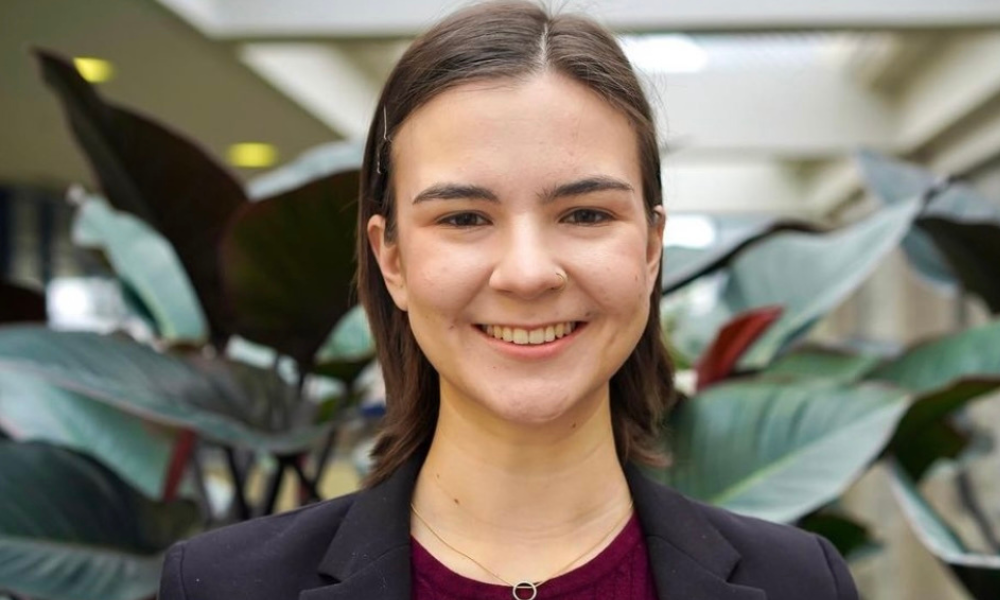Study permit application and COVID restrictions made her arrival to Canada challenging to navigate

Meghan Recker is the only international student in her class at Dalhousie University’s Schulich School of Law.
Recker dropped out of her graduate program in music composition and wanted a career change. Her partner was in law school at the time, which made her think, “Could I be a lawyer?” She liked the idea of copyright law. She could combine a legal education with her love for music and the arts.
From Wichita, Kan., she wanted to study law in Canada because her partner is Canadian, and her Cajun and Acadian roots drew her to Atlantic Canada.
She’s happy with her decision, but the journey to Canada was more stressful than any law school experience.
“Applying to Canada was harder than applying to schools,” she said.
Before making the trip to Halifax in August 2021, she had to apply for a study permit. Wait times, cost, currency conversion, and strict documentation requirements made the application process unpleasant.
Recker had no idea what to expect when she arrived in Canada. COVID-19 restrictions were changing, and she found them confusing the follow. When she flew into Montreal, chaos ensued.
“I was stranded in Montreal for a night with my cat. I went through customs, printed out a slip with a number on it, and then waited for hours in a room packed with other students,” she said. “I missed my flight, and they told me to pull some chairs together and make a bed in the airport. Luckily, my partner managed to book me a hotel room for the night.”
She trudged through the Montreal airport with five large suitcases and her cat, Gigi. Gigi was also affected by the disrupted travel plans, peeing in his carrier once they finally boarded the plane to Halifax.
“Needless to say, I was relieved when we landed and cleaned him up in the Halifax airport bathroom.”
Despite her introduction to Canada, she enjoys Halifax’s sense of community.
At first, she says Dalhousie’s tight-knit atmosphere was a source of unease, but she’s grown to appreciate it.
“There was this small feeling in the back of my head. Something felt similar but so different at the same time. Eventually, that feeling went away as I became close with my friends.”
Dalhousie divides its first-year law class into three sections of approximately 60 students. Recker says she can recognize most people in her section and some from the second section but doesn’t know anyone from the third section. She doesn’t mind not knowing everyone in her class. She says students found friend groups in the first semester and stuck with them, so she has a circle of her own.
She says there is some competition between sections, but nothing too serious. She says attitudes changed after the first semester.
“We were all humbled after those first exams.”
As an American, she expected to be at a disadvantage. Canada’s political system and Indigenous history were new to her. She thought Canadian students would know important things she didn’t, but she quickly realized everyone was on the same level.
Recker says despite the challenges along the way, she’s glad she chose to study in the Maritimes.










